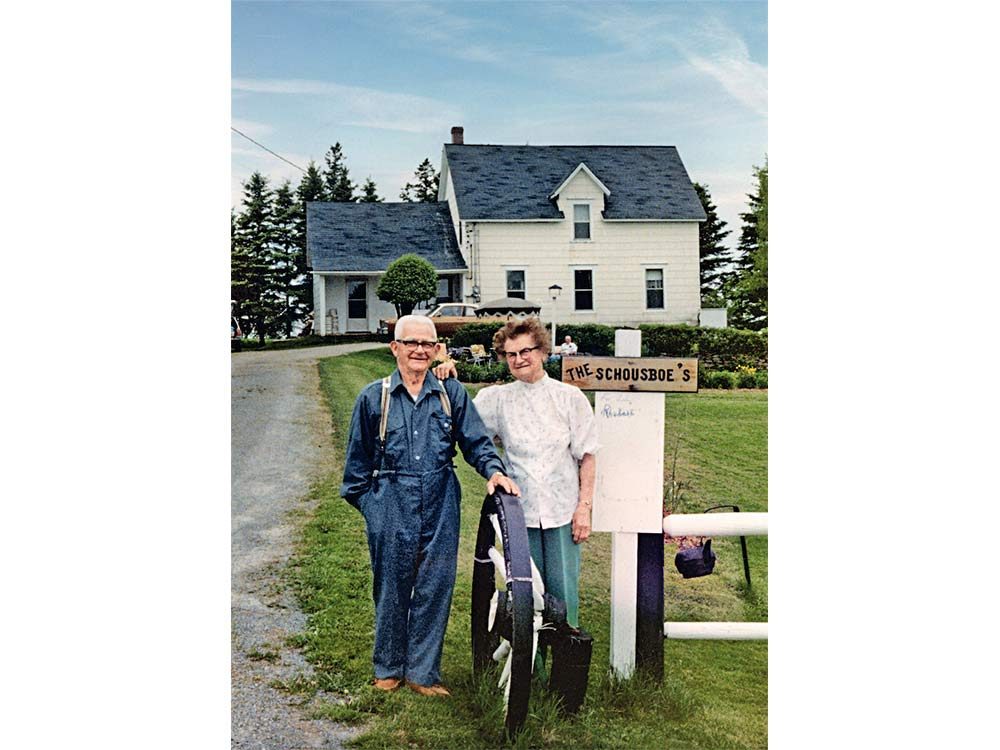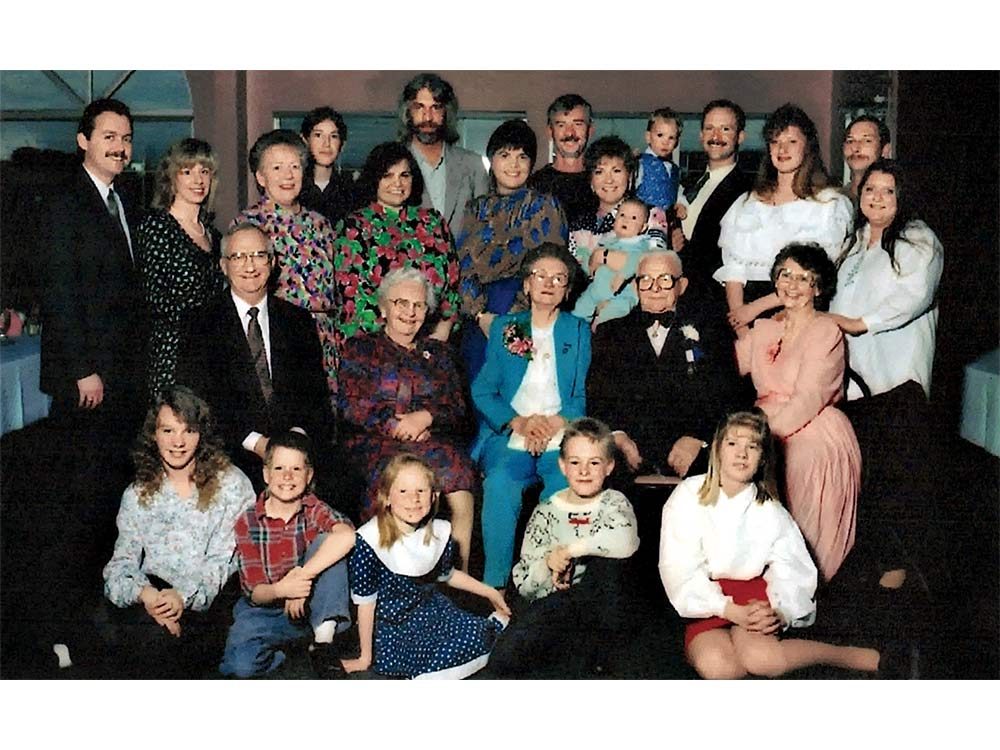
Setting a Good Example
When the fairy tale romance of my parents, Gus and Helvig (Hilda), blossomed into an engagement, my father decided to make his own way, rather than wait to inherit the family farm in Denmark. He made contact with a distant cousin working on a farm in Plaster Rock, N.B., to see if there would be a good future for him in Canada.
The answer came back, “Yes, and we have a job here for you.” Arrangements were quickly made and Dad left for Canada in 1927 with ten dollars to his name and not a great deal else to start his new life. He did, however, have a good education. He had graduated from high school, knew basic English, had served a two-year apprenticeship on a “learning farm” and did a brief stint of compulsory military service. He also enjoyed good health and had a strong desire to succeed.
Within a few months, he had repaid the loan for his passage and saved enough to bring my mother over as well. They were married in Plaster Rock in April 1928.
Dad was hired as herd manager on a big farm near Sussex, N.B., where he was in charge of a large herd of show cattle with high-milk production records. My mother was in charge of the farm’s household, boarding the hands and taking phone messages. Mother had a good basic education, but spoke no English at all, so this was a pretty daunting baptism by fire for her, especially coupled with the separation from her family, a strange culture and an unfamiliar lifestyle. However, she dug in and with the help of Dad translating words and using photos in the Eaton’s catalogue as a visual aid, she soon spoke enough English to deal with the phone calls and her other responsibilities.
My parents were hardworking, ambitious and determined to have their own farm and become good Canadian citizens. After about two years of working for others, they were able to buy a 100-acre farm in Bloomfield, a small community near Sussex, where they would live for the rest of their lives.
By now, the Great Depression had settled in and times were not easy but my mother, now pregnant with me, worked side by side with Dad in the barn and the fields and together they forged a living for themselves and their two children. I had arrived in the summer of 1930 and my brother Peter in 1934. We didn’t have many luxuries—except at Christmas, when there were yummy treats and pretty parcels containing needed clothing and a toy or two—but we were never hungry, cold or without shoes.
By the end of the decade, Mom and Dad had paid off their mortgage and were just in time to welcome the relative prosperity of the war years. They had become proud Canadian citizens in 1934 and Dad tried to enlist, but was told he was needed more on his farm to raise food. These were good years economically for us, but also very labour-intensive as it was impossible to find workers. Thus it became a family farm in the real sense of the word. I was now nine and Peter only five, but we learned to do a lot of jobs. I was considered old enough to milk cows, work in the hay field and drive the horses, while we both did a lot of weeding and other garden chores, as Dad had by now developed a large door-to-door market business that he serviced weekly and which produced a much-needed cash flow.

Reaping the Rewards
After the war, life became a little easier on all of us. We acquired our first motor vehicle and gradually added running water and electricity to both house and out-buildings and updated household amenities. Mother could finally abandon her old wood stove and get a refrigerator. My parents also beg to do a lot of community service, becoming involved in organizations such as Home & School, Boy Scouts and Girl Guides, and the Women’s Institute. They served on a number of farm boards as well, including Farm Forum, and various marketing boards, in addition to participating in agricultural fairs, farm beautification competitions and artificial insemination facilities. They were also active in their church, the Danish cultural society and even politics, although they never ran for office.
In 1984, they were rewarded for all this work on behalf of their community and profession, when Dad was awarded the Order of Canada, an honour of which he was very proud.
They were equally proud of their family, which had grown considerably. Peter and I were both university-educated and enjoyed successful professional careers. We both married and together gave our parents nine grandchildren, 15 great-grandchildren and six great-great grand-children, some of whom they never met as both are now gone to their reward—Mom in 1993 and Dad in 1998.
Peter and I are so grateful for the values they instilled in us and for the guidance and support we received as we pursued our own dreams. Our families have many happy memories of holidays and special times with Bestefar and Bestemor (Grandpa and Grandma) on the farm. In our opinion anyway, we feel that they truly embodied what becoming Canadian citizens is all about—making your part of this great country better for your having been here. We are very proud of their efforts.